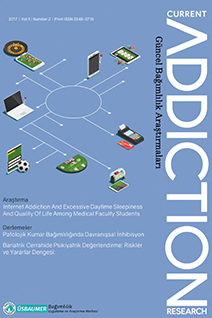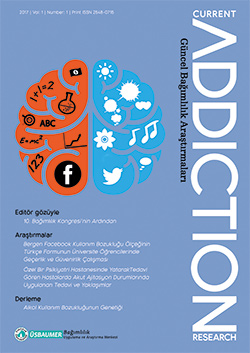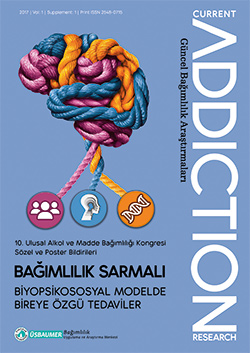Years
2024
Categories
Authors
ARTICLES
Review Article
Ceyda ŞİŞMAN ÜNLÜ,Cemal Onur NOYAN
2024, 8(1), s:20-27
Gambling Disorder is a clinical picture characterized by repetitive and persistent gambling behavior. Gambling Disorder is the first and only non-substance-related behavioral addiction in the DSM-5 due to its neurobiological and clinical commonalities with alcohol and substance use disorders. When we examine Gambling Disorder from a neurobiological and neurocognitive perspective, neurotransmitters such as dopamine, serotonin, norepinephrine and glutamate are thought to be effective in the development of the disease. From a neurocognitive perspective, Gambling Disorder is based on behavioral conditioning with positive reinforcers, value attribution, impulsivity and impairments in decision-making processes. If an individual adopts gambling behavior as a coping mechanism for negative life events, this behavior continues to increase over time. Increasing gambling behavior over time weakens the individual's self-control capacity and leads to the continuation of gambling behavior despite the negative consequences. This vicious cycle contributes to the exacerbation of the disorder by causing problems in work, family, academic and social areas. Gambling Disorder, although initially a seemingly harmless behavior, can turn into addiction depending on the balance of underlying predisposing and protective factors.
Review Article
Psychology-Related Factors Of Internet Addiction: Literature Review
Eda Deligöz
2024, 8(1), s:28-33



 2. Sayı
2. Sayı
 1. Sayı
1. Sayı
 Ek Sayı
Ek Sayı







